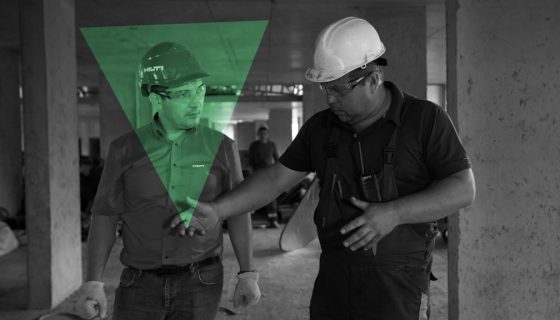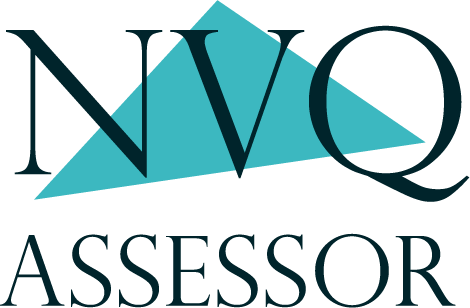 By Katherine Little
By Katherine Little
Published 19th Dec, 2022 | Blog

ACWE is all about assessing learners in their work environment. This is really helpful for practical skills like construction, as you can assess them on the site. It’s also great for health and social care workers as again they can assess learners doing a practical task. This course is for people who only plan on assessing learners on the job. The course is comprised of two main units.
- Understanding Principles and Practices of Assessment,
- Assess Occupational Competence in the Work Environment.
UNIT 1
The first unit is all theory-based and will give you the knowledge that you need in order to understand all the responsibilities of an Assessor. This is unfortunately one of the biggest units because it covers a lot of detail.
UNIT 2
The second unit requires you to carry out 2 assessments on 2 separate learners. If you use a training provider like Brooks and Kirk they have a guarantee of access to learners so you don’t have to find them yourself, and it cuts out the middle man. Within this unit, you get to start planning and carrying out real-life assessments. You will be guided through different techniques you can use to assess your learners.
Once you have completed the Level 3 Award in Assessing Competence in a Work Environment, you will be able to carry out assessments of candidates in their own workplace. However, if you want to assess learners in just their learning environment then you would need a completely different course, which we will get to in another blog! In addition, if you want to assess in both areas, then you again will need a different course. If you have any questions please give us an email at hello@nvqassessor.org.uk and we will be happy to answer any and all questions.
NEWSLETTER
Fortnightly Assessor Jobs, Blog Posts and Exclusive Content straight to your inbox.
Welcome!
We’ve spoken about choosing the right assessor course for you. But we haven’t gone into detail about some of the specific courses. If you’ve read our previous blog and decided that the Level 3 Award in Assessing Competence in A Work Environment (ACWE) is for you, then read on to find out a bit more information! If you’re just wondering what it even is, then don’t worry we’re going to go through it with you. So what is ACWE?
ACWE is all about assessing learners in their work environment. This is really helpful for practical skills like construction, as you can assess them on the site. It’s also great for health and social care workers as again they can assess learners doing a practical task. This course is for people who only plan on assessing learners on the job. The course is comprised of two main units.
- Understanding Principles and Practices of Assessment,
- Assess Occupational Competence in the Work Environment.
Unit 1
The first unit is all theory-based and will give you the knowledge that you need in order to understand all the responsibilities of an Assessor. This is unfortunately one of the biggest units because it covers a lot of detail.
Unit 2
The second unit requires you to carry out 2 assessments on 2 separate learners. If you use a training provider like Brooks and Kirk they have a guarantee of access to learners so you don’t have to find them yourself, and it cuts out the middle man. Within this unit, you get to start planning and carrying out real-life assessments. You will be guided through different techniques you can use to assess your learners.
Once you have completed the Level 3 Award in Assessing Competence in a Work Environment, you will be able to carry out assessments of candidates in their own workplace. However, if you want to assess learners in just their learning environment then you would need a completely different course, which we will get to in another blog! In addition, if you want to assess in both areas, then you again will need a different course. If you have any questions please give us an email at hello@nvqassessor.org.uk and we will be happy to answer any and all questions.
NEWSLETTER
Fortnightly Assessor Jobs, Blog Posts and Exclusive Content straight to your inbox.
Welcome!

Building Services End-Point Assessor
The employer is a Training Sector organisation in Leamington Spa who specialise in developing qualifications for the Construction and Civil Engineering sectors. They develop a range of industry qualifications including Apprenticeships, which are developed and assessed by sector specialists with real industry knowledge. They currently have a fantastic opportunity an experienced Building Services Engineer or […]

Childcare Assessor (Trainee or Qualified)
KM have an exciting opportunity for a Childcare Assessor to deliver full Apprenticeships in Childcare! This opportunity is open to both Trainee and Qualified candidates. Trainee applicants – this is a great opportunity for a Room Leader (or above) to transition to a new and rewarding career within the training industry! Qualified Assessors – applications […]

Skills Tutor
Educated Appointments are delighted to be supporting a fast-growing premier provider of accountancy training and apprenticeships. Due to increased demand for apprenticeship training programmes they are looking out for new Tutor to join our team. This role sits within the Impact Skills Team and ultimately reports to the Programme Delivery Director. This role includes travel […]

Business and Education End-Point Assessor
The role of an Apprenticeship End-Point Assessor is to provide independent, fair, reliable, and consistent assessment services to Training Qualifications UK customers working with Apprenticeship Standards. End-Point Assessors are required to use assessment experience with robust and relevant industry knowledge to form judgements and grading decisions upon the completion of a variety of assessment activities, […]


